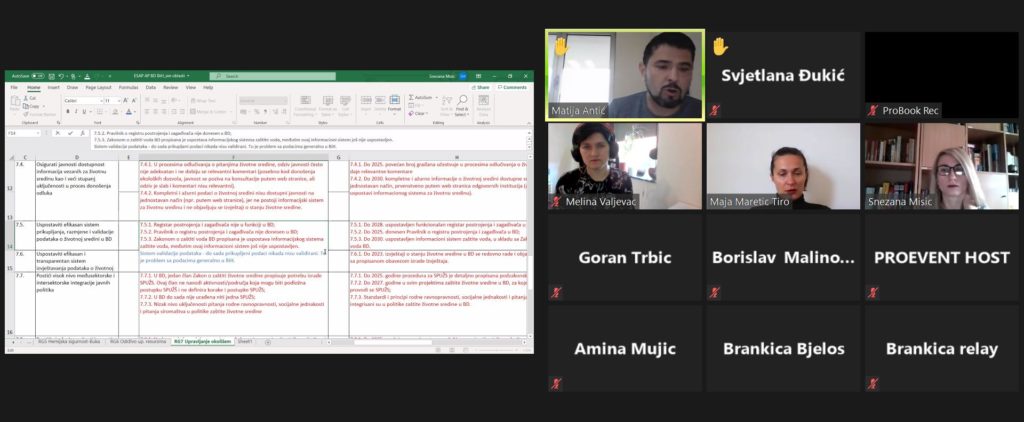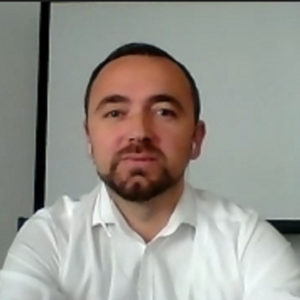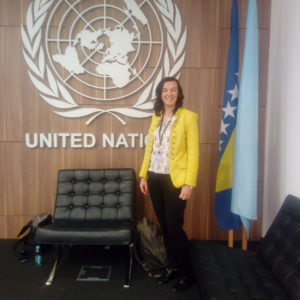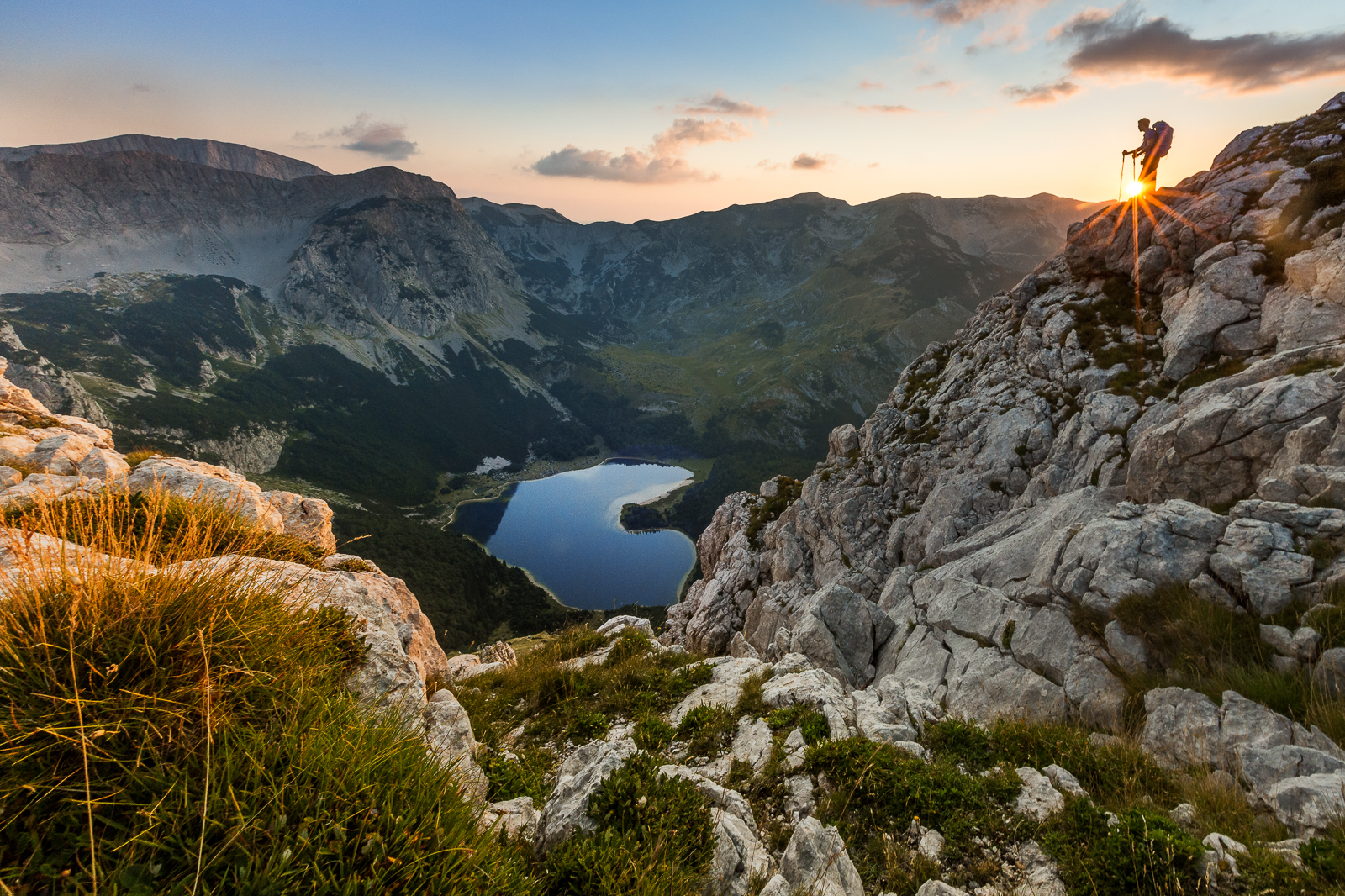Developing the environmental strategy and action plan for Bosnia and Herzegovina (BiH ESAP 2030+) is a long and complex process involving many stakeholders. Who are they and how do they contribute to the process? In this post, we will introduce you to some of the experts who are members of the working groups and ask them their impressions about the recently finished series of 34 meetings held online between March and April 2021.
Developing the environmental strategy follows a participatory approach, meaning it is open to all relevant stakeholders. Governmental as well as non-governmental experts, academic researchers and experts from the private sector, from all levels; BiH, FBiH, RS and BD, can join the seven different thematic working groups to contribute to the process. The third round of meetings concentrated on the baseline and expected outcomes of the action plans for all four levels of government mentioned above.

The first expert we met was Mr. Igor Jevtic, who is a member of the Air Quality, Climate and Energy working group on BiH state level.

Which organization or stakeholder group do you represent in the working group?
I represent the Environmental Protection Department within the Ministry of Foreign Trade and Economic Relations of Bosnia and Herzegovina, which is a state-level ministry of Bosnia and Herzegovina.
How come you are a member of the working group in the BiH ESAP project?
I was officially nominated as a state representative in the working group on Air Quality, Climate and Energy, taking into account my overall experiences and previous engagement with environmental and climate activities of Bosnia and Herzegovina.
What did you find most interesting/beneficial during this round of meetings?
Having in mind the overall complexity of environmental and climate governance in Bosnia and Herzegovina, as well as our current and future challenges, an opportunity to have these roundtable meetings, which include most environmental and climate stakeholders in Bosnia and Herzegovina, presents a unique opportunity to share and discuss solutions for identified challenges, inconsistencies and opportunities in Bosnia and Herzegovina’s environmental and climate policies.
In addition, these joint meetings are strengthening the capacities of all competent environmental and climate authorities in Bosnia and Herzegovina at the operational level, as well as helping to raise awareness among the general public about environmental and climate issues in BiH.
In the long-term, these activities are improving the state of the environment in Bosnia and Herzegovina, as well as contributing to the country’s progress in the process of becoming a member of the EU.
Then we turned to the Federation of BiH (FBiH) and Mr. Saša Džumhur. He is a member of the chemical safety and noise working group.

Which organization or stakeholder group do you represent in the working group?
I represent IPSA INSTITUT, a private company from Sarajevo, where I work as a Senior Researcher in the Department for Studies. It has been nearly 20 years since my first project, where our task was to conduct an environmental impact study (“Sarajevo Transversal Road”). Otherwise, I have been hired as an environmental expert in various EU-funded projects on transport infrastructure.
How come you are a member of the working group in the BiH ESAP project?
The invitation came from the Lead Expert of the Working Group who invited me to join the efforts in the development of the BiH ESAP as of this round of meetings. I gladly accepted the invitation. I see this as recognition of my previous efforts on mitigation of adverse effects of noise from traffic. I performed noise calculation and modeling in several projects and prepared relevant noise maps and action plans for mitigation of the adverse effects of noise.
What did you find most interesting/beneficial during this round of meetings?
I should say that the webinar, organized in preparation for this round of meetings, was the most interesting event. I had an opportunity to hear the extremely interesting experiences of Swedish and Romanian experts. The presentation on the implementation of the Directive 2002/49/EC (assessment and management of environmental noise) in Romania was particularly interesting. Of course, I found the meetings of the working groups highly interesting (I participated at the meetings for three jurisdictions – BiH, FBiH, and RS). Special credit to the organizers, who, in these extremely complex circumstances, used adequate technologies and provided an opportunity for all of us to contribute to the process in order to define baseline and targets in the greatest possible detail.
We also got to hear from an NGO representative who is highly active in the process of developing the ESAP, Mr. Viktor Bjelić, a member of the EKO BiH network on environmental issues. During round three of meetings, Mr. Bjelić attended the water group both at the level of Republika Srpska and Brčko District.

Which organization or stakeholder group do you represent in the working group?
Centre for Environment EKO BiH Network.
How come you are a member of the working group in the BiH ESAP project?
I was nominated by the Centre for Environment EKO BiH Network.
What did you find most interesting/beneficial during this round of meetings?
It has been an interesting and important process so far, but I would appreciate taking the opportunity to encourage all nominated government representatives to engage more thoroughly. By having the government present, and in collaboration with NGOs and other relevant actors, we are more likely to develop a strategy proposal that can be agreed upon and carried out making positive changes. I would also like to see more cooperation and collaboration between different sectors. That would lead to much better outcomes since they are all interconnected and most environmental problems need joint solutions.
Finally, we also managed to get hold of Ms. Svjetlana Đukić, who is contributing with her expertise to the water group at the level of Brčko District.

Which organization or stakeholder group do you represent in the working group?
I was nominated to water working group by the Department for Agriculture, Forestry and Water Management of the Government of the Brčko District of BiH.
How come you are a member of the working group in the BiH ESAP project?
I have worked in the Department for Agriculture, Forestry and Water Management of the Government of the Brčko District of BiH for 18 years now. I participated in various working groups, including the group for the development of the draft Law on Waters, and different EU funded projects, in many trainings, in drafting answers to the EU Questionnaire for Chapter 27 and other working groups in the water sector (protection of water, protection from water…).
What did you find most interesting/beneficial during this round of meetings?
I found the interactive model which we use in the working groups very interesting, aimed at developing a high-quality document.
The fourth round of the working group meetings is scheduled for May 2021, when members will discuss the measures proposed for each of the defined operational objectives in the ESAP Action Plan.
Watch this space for more updates!







